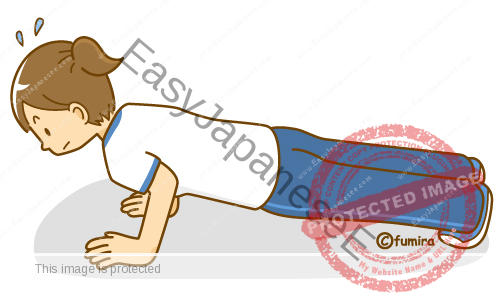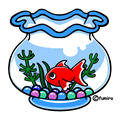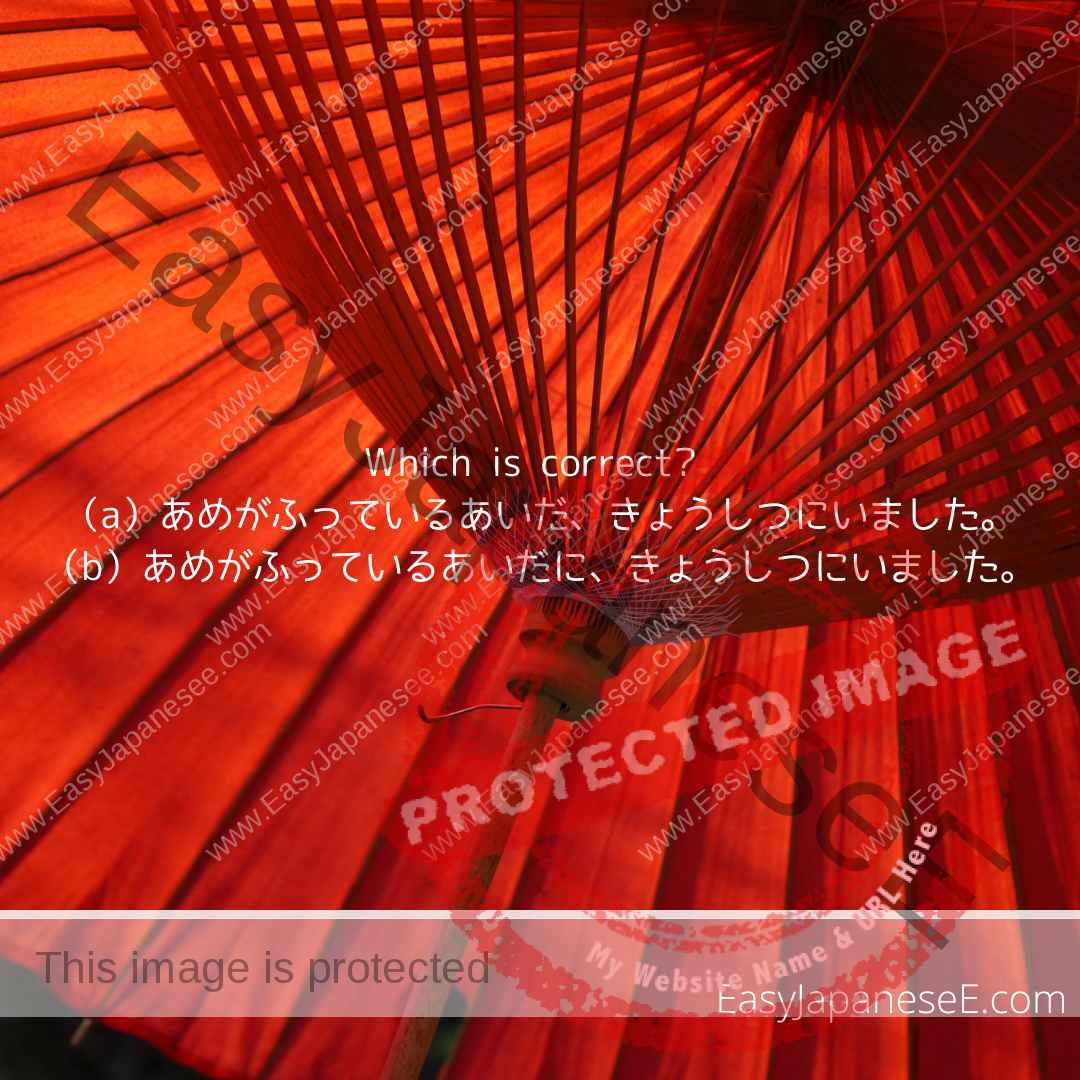Verb stem + たいです means “I want to ….”, so the above sentence in Japanese is アイスクリームが食(た)べたいです。 “verb stem”…
テレビを見てからケーキを焼きますand テレビを見たからケーキを焼きます
Can you tell me the difference between the above two? The aesthetic difference is betweenて andた only. テレビを見てからケーキを焼きます means…

~ために vs ~ように
ために and ように can both be translated as “in order to” but they are not always interchangeable. This post explains when to use which.

あります vs います
あります and います are both used in a sentence meaning, “there is/are ….” They are verbs to describe “existence.” This post explains when to use which.
骨(ほね)が折(お)れています
骨が折れています Last week I wrote “てForm + います” expresses an action being undertaken and that in English the same thing…
live, know, love, believe, have, etc.
Do you know the Japanese words for these verbs? They are respectively: 住(す)んでいます 知(し)っています 愛(あい)しています 信(しん)じています 持(も)っています Yesterday, I…
てForm + います
Yesterday, I talked about how to use てform . Today, I will talk about one of the most basic usage…

~あいだに vs ~うちに
~あいだに and ~うちに can both be translated as “while ~” but they are not always interchangeable. This post explains when to use which.

the difference between あいだ and あいだに
あいだ can be used like a English conjunction “while” but adding に afterwards or not changes the nuance quite a bit. This post explains how.
ばんごはんのあと、べんきょうするつもりです。
つもり is used to state an "intention." So the above sentence means “I’m planning to study after dinner.” You usually…
そうです
そうです is often used in conversations. You can say はい、そうです (Yes, that’s correct) to give an affirmative answer regardless of…
ながら and …たり、~たり
Somebody asked me to correct this sentence: わたしはゲームをしながら、おんがくをきくこととユーチューブのビデオをみます。 There are a few things you have to consider here. First point…
イニエスタ、ほんとにきちゃった。
One of my friends posted that in Facebook the other day. He was very happy that Andrés Iniesta joined a…
きのうのよる、テレビをみてしまいました。
This sentence describes the same fact as きのうのよる、テレビをみました。The difference is there is a hint of regret, "I didn’t mean to…
してあげます、してくれます、してもらいます
Sometimes I come across a sentence like:おかあさんはわたしにチョコレートをかいました。This sentence is grammatically correct, but it is NOT appropriate. IF a native speaker…
Negative form of です
I made some quizzes on Canvas LMS for my HSC preparation course students and one of the question I put…
